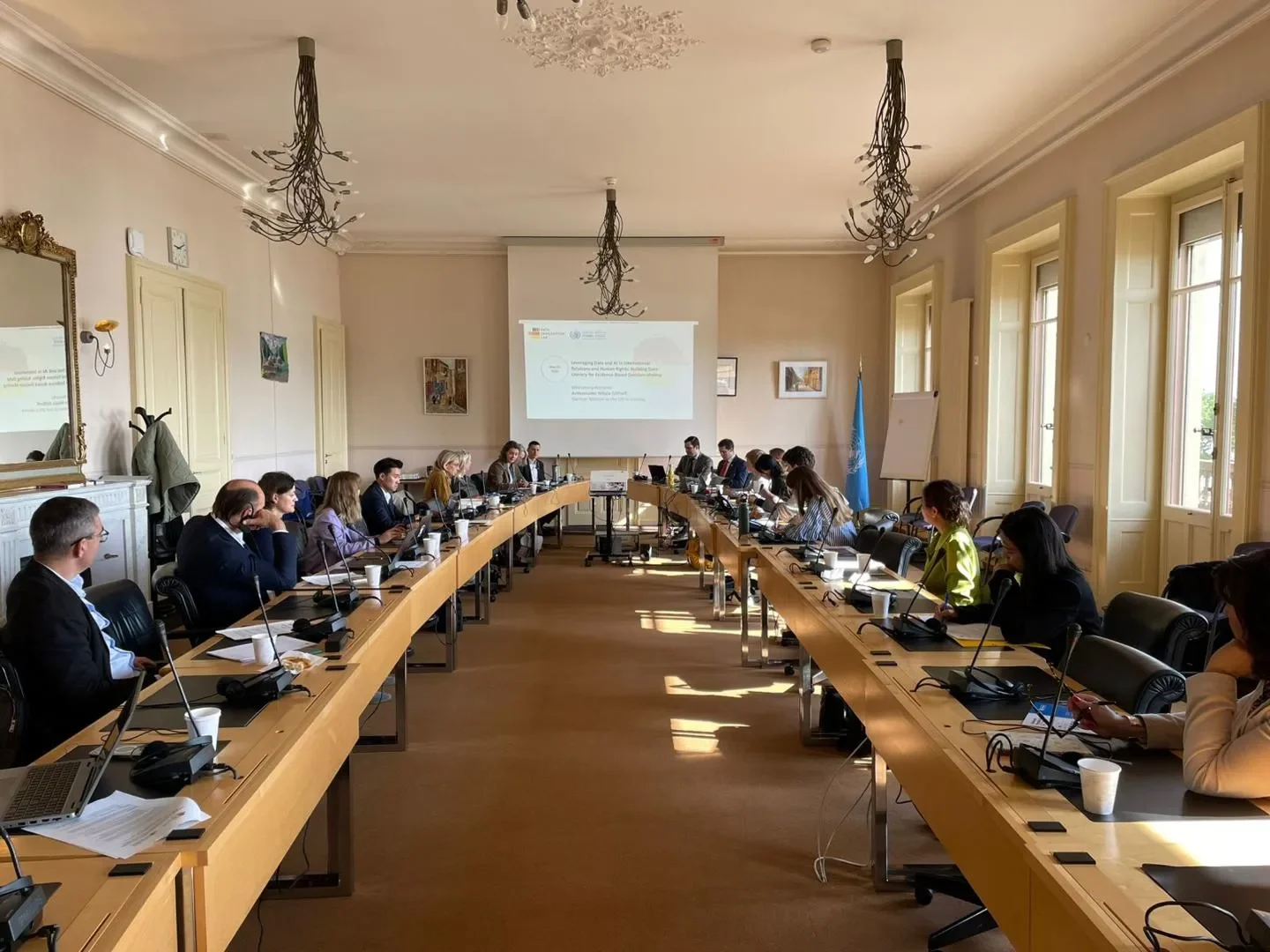University of Birmingham Shapes Global Debate on Ethical AI in Diplomacy and Human Rights

By Anushka Malhotra
1 minute 40 seconds
Artificial Intelligence
Share:
Quick Read: The University of Birmingham led discussions on ethical AI in global governance at a major international workshop in Geneva, emphasising responsibility, transparency, and human rights protections in AI deployment.
As artificial intelligence continues to transform international diplomacy and human rights governance, the University of Birmingham is playing a leading role in guiding global conversations on ethical and responsible AI deployment.
At the recent high-level workshop “Leveraging Data and AI in International Relations and Human Rights”, held on 22–23 May 2025 at the historic Palais Wilson in Geneva, experts from the University’s Centre for AI in Government shared cutting-edge insights on AI foresight and governance. The event, co-organised by the German Federal Foreign Office’s Data Innovation Lab and the UN Human Rights Office’s Innovation and Analytics Hub (OHCHR), brought together diplomats, data scientists, and policy leaders to explore AI’s growing role in global governance.

Image Credit: University of Birmingham
Dr. Martin Wählisch, Associate Professor of Transformative Technologies, Innovation and Global Affairs at the University of Birmingham, led a dedicated session on "The Future of Computational Global Affairs". His talk focused on the ethical design and long-term implications of AI tools used in diplomacy, peacebuilding, and human rights. He also added:
This workshop underlined why it is critical for practitioners to stay both tech-literate and future-literate. There is a growing range of AI-driven tools in diplomacy—from early-warning systems to negotiation aids—but serious questions remain about transparency, accountability, and dual-use risks. We need a cautious, values-based approach.
The University of Birmingham’s recent publication, Big Questions About AI, has added further momentum to these discussions, exploring how ethics and futures literacy must underpin AI integration in public life.
A Global Call for Ethical AI in Governance
Keynote speakers at the Geneva event included:
- Ambassador Katharina Stasch, Germany’s Permanent Representative to the UN in Geneva
- Peggy Hicks, Director of Thematic Engagement, OHCHR
- Gunda Ehmke, Project Lead, German Federal Foreign Office
- George Hodge, Head of Data Solutions, OHCHR
- Philip Oedi, Data Scientist, German Foreign Office
- Peggy Hicks, Director of Thematic Engagement, OHCHR
- Gunda Ehmke, Project Lead, German Federal Foreign Office
- George Hodge, Head of Data Solutions, OHCHR
- Philip Oedi, Data Scientist, German Foreign Office
These leaders emphasised the strategic importance of ethical and transparent AI systems in shaping evidence-based international decision-making.
A Hub for Thought Leadership
The University of Birmingham continues to position itself as a global thought leader on AI governance, contributing academic depth to policy-focused debates. Its Centre for AI in Government is actively involved in research that supports responsible innovation, global human rights protection, and effective international cooperation in the age of AI.
Dr. Wählisch added:
As the digital transformation of diplomacy accelerates, our role is to ensure technology evolves within democratic, inclusive, and human rights-based frameworks.

Proudly Backed By Our Patrons














